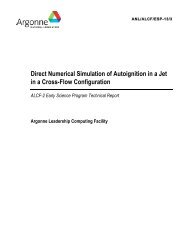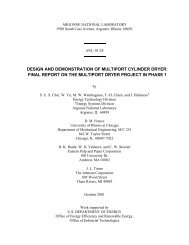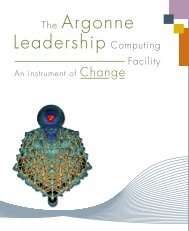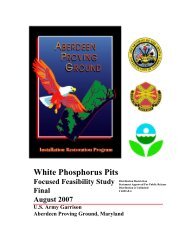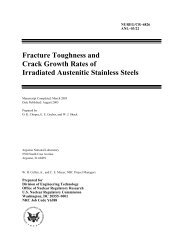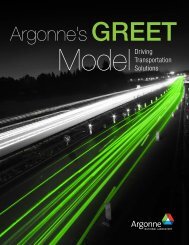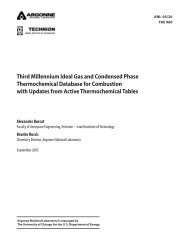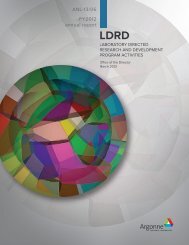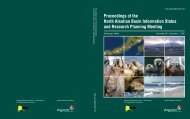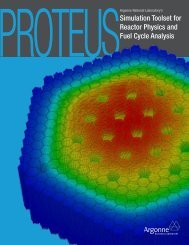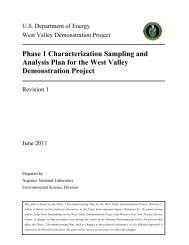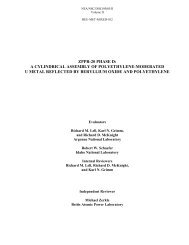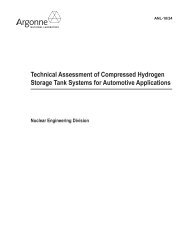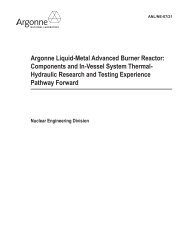ALCF Science 1 - Argonne National Laboratory
ALCF Science 1 - Argonne National Laboratory
ALCF Science 1 - Argonne National Laboratory
Create successful ePaper yourself
Turn your PDF publications into a flip-book with our unique Google optimized e-Paper software.
EARLY SCIENCE PROGRAM<br />
Combustion<br />
Direct Numerical Simulation of Autoignition in a Jet<br />
in a Cross-Flow Combustion<br />
Lean combustion turbines provide excellent opportunities for<br />
environmentally friendly propulsion and electricity generation, but are<br />
severely limited by the danger of autoignition of the fuel-air mixture<br />
before its proper location. Further development of next-generation<br />
devices hinges upon better understanding of autoignition in flows that<br />
are characterized by considerable fluctuations of velocity, composition,<br />
and temperature. The aim of this project is to study the fundamental<br />
aspects of autoignition in a fuel-air mixing pattern directly applicable<br />
to mixing ducts in gas turbines. The Nek5000-based combustion code<br />
will be used to perform very large-scale direct numerical simulations<br />
of autoignition of a diluted hydrogen jet in a cross-flow of hot<br />
turbulent air in a laboratory-scale configuration. Detailed description of<br />
chemistry and molecular transport will be used to investigate the flow<br />
and scalar fields under cold and reactive conditions. It will also be used<br />
to construct databases that will be explored for years by engineers<br />
and scientists working in engine development for the construction<br />
and validation of advanced combustion models for engineering-type<br />
computational fluid dynamics codes.<br />
Early <strong>Science</strong> Program<br />
Allocation:<br />
5 Million Hours<br />
16<br />
Contact Christos Frouzakis<br />
Swiss Federal Institute of Technology | frouzakis@lav.mavt.ethz.ch



